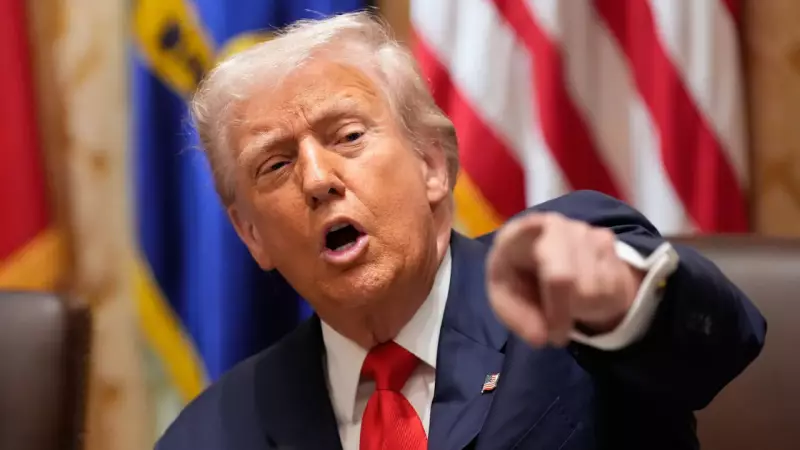
In a move that's sending shockwaves through political circles, former President Donald Trump's team is reportedly exploring options to freeze federal spending—a strategy that bears striking resemblance to tactics employed by Richard Nixon over five decades ago. This potential approach raises critical questions about presidential power and its consequences for the American economy.
The Ghost of Nixon's 1972 Impoundment
Back in 1972, President Richard Nixon attempted to control federal spending by refusing to release funds that Congress had already appropriated—a controversial practice known as impoundment. Nixon's justification? He claimed executive authority to withhold money for programs he deemed wasteful or inflationary.
"What we're seeing today feels like déjà vu from the Nixon years," explains Dr. Sarah Chen, political historian at Georgetown University. "The same constitutional questions about separation of powers that haunted Nixon's presidency are resurfacing with Trump's proposed spending freeze."
Constitutional Crisis in the Making?
The historical parallels are particularly concerning because Nixon's impoundment strategy ultimately led to a constitutional showdown. Congress responded by passing the Budget and Impoundment Control Act of 1974, which severely restricted the president's ability to withhold congressionally approved funds.
Legal experts warn that any modern attempt to freeze spending without congressional approval would likely face immediate legal challenges. "The courts have been clear that the president cannot simply refuse to spend money that Congress has mandated be spent," notes constitutional law professor Michael Rodriguez.
Economic Implications for Today's America
Beyond the legal battles, economists are sounding alarms about potential economic fallout. A sudden spending freeze could:
- Disrupt essential government services and programs
- Impact millions of Americans who depend on federal assistance
- Create uncertainty in financial markets
- Potentially trigger a government shutdown
"The Nixon era taught us that unilateral executive action on spending creates economic instability," warns economist Dr. Priya Sharma. "When businesses and households can't predict government operations, investment and consumption patterns become volatile."
Political Fallout and Public Reaction
The political consequences of Nixon's impoundment strategy were severe, contributing to the erosion of public trust and the eventual Watergate crisis. Modern politicians are watching carefully how today's proposals might affect voter confidence in government institutions.
As one senior Democratic senator commented anonymously: "We learned from Nixon that circumventing Congress on budgetary matters rarely ends well—for the president or the country."
With the 2024 election approaching, the debate over presidential spending powers is likely to intensify, making this historical comparison increasingly relevant for voters and policymakers alike.





